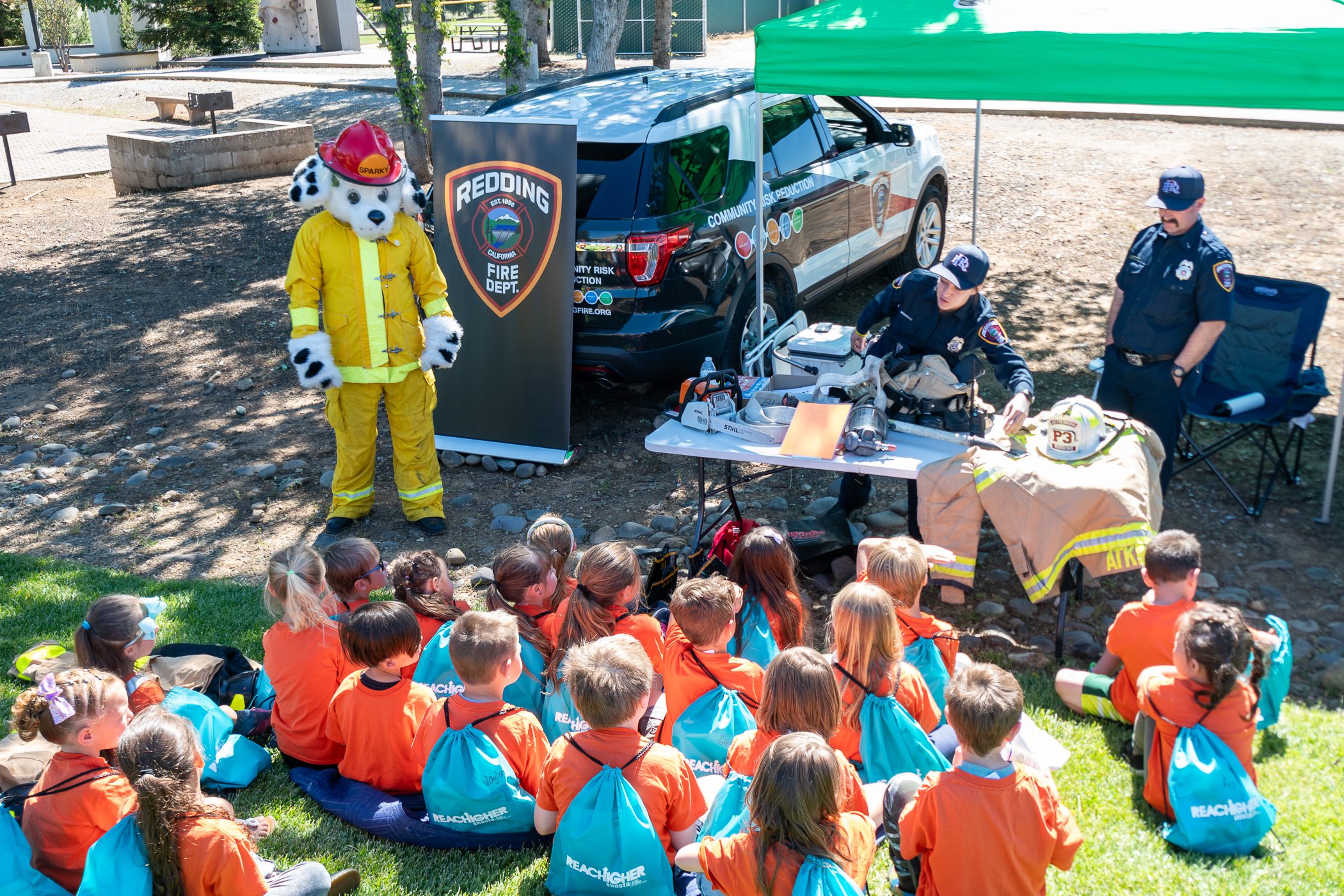How Kindergarten activities nurture early learning and social skills
Wiki Article
The Importance of Interactive Activities in Grade School Education
Interactive activities play an important role in grade school education. They involve trainees and boost discovering results. With group jobs and hands-on experiments, pupils experience the product in a useful method. This technique satisfies varied learning designs and advertises essential abilities. The advantages expand beyond academics. Exploring the deeper impact of these activities discloses their significance fit young students' futures. What changes occur when trainees actively get involved?Enhancing Involvement Via Interactive Discovering
Traditional teaching methods have their merits, interactive knowing greatly improves trainee involvement in grade school education and learning. This technique encourages active engagement, enabling trainees to immerse themselves in the understanding process. By utilizing team activities, hands-on experiments, and technology-driven resources, teachers produce an environment where trainees feel much more connected to the product.Interactive knowing promotes collaboration amongst peers, promoting communication abilities and team effort. It additionally satisfies varied understanding designs, ensuring that visual, auditory, and kinesthetic learners can all grow. Pupils are extra likely to keep details when they actively take part, as opposed to passively receiving understanding.
This vibrant technique not only makes learning enjoyable however additionally instills a feeling of ownership in pupils regarding their instructional journey. As they engage with the content, their curiosity and inspiration to learn increase, laying a solid structure for future academic success.
Developing Vital Assuming Skills
Interactive understanding not only enhances engagement yet additionally works as a driver for creating crucial believing skills in elementary school students. Through activities such as problem-based understanding, arguments, and hands-on experiments, students are urged to evaluate details, evaluate various viewpoints, and formulate reasoned final thoughts. These interactive experiences need trainees to doubt assumptions, leading them to think more deeply concerning numerous topics.
Furthermore, interactive activities typically existing real-world scenarios that challenge pupils to use their knowledge artistically. By navigating with these obstacles, they learn to identify relevant information and make informed choices. This procedure fosters not only individual crucial thinking but also urges trainees to verbalize their thought processes, boosting their capability to communicate properly. Because of this, interactive discovering environments grow a generation of vital thinkers who are much better prepared to tackle complex troubles in their future scholastic and specialist ventures.
Fostering Cooperation Amongst Peers
Promoting partnership among peers is important in quality college education, as it improves synergy and communication skills. Involving in group tasks assists trainees build trust fund and respect for one another, laying the foundation for effective cooperation. Analytical with each other permits trainees to find out from each other and develop a cumulative method to difficulties.Teamwork and Communication Skills
Effective team effort and communication skills are essential parts of an effective quality college education. Involving in interactive activities motivates students to work together, share concepts, and solve issues with each other. Such experiences promote the advancement of essential interaction capabilities, enabling children to reveal their thoughts plainly and listen actively to others. With synergy, trainees find out to value diverse point of views, fostering a sense of community and shared obligation. Structured team jobs, whether in academics or creative projects, enhance peer interactions, educating children exactly how to bargain functions and settle conflicts. These abilities not only add to a favorable classroom environment but likewise prepare trainees for future joint ventures in higher education and learning and the office. Overall, teamwork and interaction are foundational to alternative development in elementary school.Building Depend On and Regard
Building depend on and regard among peers works as a cornerstone for successful collaboration in grade college atmospheres. When trainees feel valued and valued by their classmates, they are most likely to engage proactively in group activities. Interactive tasks, such as group tasks and participating games, provide opportunities for students to find out from one another, fostering a feeling of neighborhood. This environment motivates open communication, enabling students to share their ideas and viewpoints without fear of judgment. As trust constructs, students come to be a lot more prepared to share responsibilities and sustain each other's discovering. Ultimately, cultivating an ambience of depend on and regard improves not just scholastic results yet also social advancement, gearing up pupils with necessary social skills for their future ventures.Problem-Solving Together
Collective problem-solving engages pupils in vital reasoning and team effort, vital abilities for their personal and scholastic development. When trainees collaborate to tackle obstacles, they learn to connect successfully, regard diverse point of views, and leverage each various other's toughness. This procedure boosts their ability to assess issues from different angles and create creative options. Group tasks, such as scientific research experiments or mathematics challenges, promote active participation and promote a sense of neighborhood. As trainees work together, they likewise build social skills, learning to bargain and endanger, which are vital for future interactions. Inevitably, analytical with each other grows a supportive learning environment, encouraging pupils to take ownership of their education while preparing them for collective ventures past the classroom.Motivating Creative Thinking and Innovation
Encouraging creativity and innovation in elementary school education and learning can be greatly boosted via hands-on learning experiences. These tasks enable students to involve straight with products and ideas, promoting imaginative reasoning. In addition, joint team tasks can promote diverse concepts and options, better supporting an innovative environment.Hands-On Discovering Experiences
A multitude of hands-on understanding experiences significantly improves creativity and technology in grade school education and learning. Engaging pupils in useful activities enables them to use theoretical understanding in real-world contexts, cultivating deeper understanding. By controling devices and products, youngsters develop vital analytical abilities and learn to assume outside the box. These experiences inspire inquisitiveness and encourage students to explore their passions even more. In addition, hands-on activities can bridge different subjects, connecting scientific research, art, and mathematics in purposeful ways. This interdisciplinary technique encourages pupils to see connections and believe artistically. Ultimately, hands-on knowing experiences support a generation of innovators, equipping them with the skills and confidence you could try this out required to take on future challenges and add to society in distinct methods.Collaborative Team Projects
Hands-on learning experiences normally bring about the consolidation of collective team projects, which play a crucial function in promoting creative thinking and innovation in elementary school education and learning. These jobs urge students to collaborate, sharing ideas and point of views, which enhances analytical skills and critical thinking. Via cooperation, students discover to connect properly and regard varied viewpoints, vital skills for their future. Furthermore, group projects offer chances for students to experiment with various roles, increasing their flexibility and self-confidence. Involving in this cooperative environment allows them to discover their creative thinking, pushing the limits of conventional learning. Inevitably, collaborative team tasks not just enhance the educational experience however additionally prepare trainees for real-world difficulties that need teamwork and cutting-edge thinking.Structure Self-confidence and Freedom
As trainees take part in interactive tasks, they typically find possibilities to develop confidence and independence. These tasks, whether they entail hands-on projects, role-playing, or analytic tasks, encourage trainees to take effort and express their concepts openly. By joining such experiences, students find out to trust their capabilities and make choices without depending solely on advice from peers or teachers.In addition, interactive activities cultivate a feeling of ownership over understanding. They establish critical thinking skills and durability when pupils deal with obstacles collaboratively or individually. This procedure not just improves their understanding of the topic yet likewise equips them to take threats in their knowing trip.
As they browse various interactive situations, pupils gradually lost their self-doubt, leading the way for enhanced self-confidence - Kindergarten. Inevitably, these tasks play a crucial role in nurturing positive and independent students, equipped to face future academic and personal difficulties
Developing a Favorable Class Setting
While fostering a positive class environment is necessary for reliable understanding, it requires deliberate effort from educators to create a room where trainees feel safe, reputable, and engaged. A positive environment motivates partnership, allowing students to reveal themselves without worry of judgment.Educators can accomplish this by establishing clear assumptions, promoting mutual regard, and acknowledging private contributions. Including interactive tasks even a fantastic read more boosts engagement, making finding out more delightful and dynamic.
Additionally, a nurturing environment sustains social-emotional advancement, as pupils find out to browse partnerships and settle problems. Teachers play a crucial role in modeling favorable habits and enhancing a society of generosity and inclusivity.
Frequently Asked Inquiries

How Can Parents Support Interactive Knowing at Home?
Moms and dads can sustain interactive discovering at home by providing interesting products, motivating hands-on jobs, including academic games, promoting conversations, and producing a nurturing atmosphere that promotes curiosity and exploration in their children's learning experiences. (Kindergarten)What Kinds of Interactive Activities Are The Majority Of Reliable?
Hands-on jobs, collaborative video games, role-playing scenarios, and instructional innovation applications are among one of the most effective interactive tasks. These engage trainees, improve important assuming abilities, and advertise synergy, inevitably fostering a much deeper understanding of various topics.Just How Do Interactive Activities Accommodate Various Knowing Styles?
Interactive activities involve visual, acoustic, and kinesthetic students by incorporating diverse techniques. These activities promote comprehending via hands-on experiences, collective conversations, and aesthetic aids, permitting students to take in details according to their preferred understanding style.What Are the Expenses Connected With Executing Interactive Activities?

Carrying out interactive activities incurs prices such as products, training for educators, innovation upgrades, and possible facility alterations. Budget restraints can likewise influence the regularity and selection of tasks offered to trainees in educational setups.
Just How Can Educators Assess the Impact of Interactive Discovering?
Teachers can examine the influence of interactive understanding with observations, student responses, efficiency metrics, and comparative evaluation of test scores prior to and after execution, ensuring a comprehensive understanding of interaction and understanding retention enhancements.With activities such as problem-based understanding, arguments, and this hands-on experiments, pupils are motivated to evaluate information, assess different perspectives, and develop reasoned conclusions. Interactive activities frequently present real-world situations that challenge trainees to use their expertise creatively. Involving in interactive tasks encourages pupils to work together, share ideas, and solve issues together. Interactive activities, such as group tasks and participating video games, offer opportunities for pupils to discover from one an additional, fostering a sense of area. As trainees engage in interactive activities, they typically find opportunities to build confidence and independence.
Report this wiki page